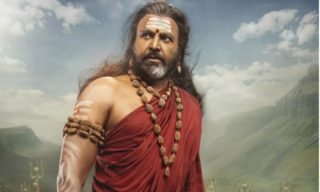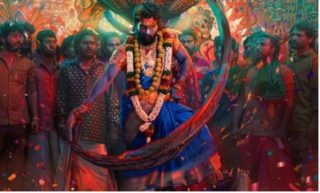 TOKYO: Starting out with funny videos and chat over Mario Kart racing games, two Ukrainian brothers have added a somber tone to their YouTube channel popular with young Japanese with updates from their country that bring the harsh realities of war closer to Japan.
TOKYO: Starting out with funny videos and chat over Mario Kart racing games, two Ukrainian brothers have added a somber tone to their YouTube channel popular with young Japanese with updates from their country that bring the harsh realities of war closer to Japan.
The Russian invasion of Ukraine began just after the duo, Sava Tkachov, 26, and his younger brother Yan, 20, celebrated the second anniversary of their YouTube debut with subscribers exceeding 2 million for their Sawayan Channel and Sawayan Games that Sava hosts.
The first word of war came from their father, a business consultant who had returned to Kyiv two months ago just before Russian troops rolled in and has stayed since to help defend his country.
The siblings’ YouTube content, which used to be full of pranks, jokes and action videos, has become more serious.
Worried about their 53-year-old father and friends in Ukraine, the brothers in early March announced on their channel that they planned to volunteer as defenders too.
It triggered a wave of reactions, some supporting and others criticizing them.
The father objected and the Tkachovs, who have no military training, abandoned the idea, especially when Sava said he received long and serious messages from some of his teenage fans showing their willingness to follow the brothers to Ukraine.
“By sending out messages through our channel, I made kids want to go to war and I cannot say if it was good or bad,” Sava said at a news conference Thursday.
“But at least it was meaningful that they became interested in the issue. Fighting the war on the front-line is not the only way.”
Sava, who uses the handle “No War,” instead turned his gaming channel into a driver for donations and charity game events.
He collected some 3.6 million yen ($29,500) in three hours, and donated entirely to the Ukrainian Embassy.
The siblings said they also started receiving messages from parents saying their children started thinking about peace and others thanking them for raising important social issues.
“I believe the merit of YouTube is I can convey the real information from the ground that my father is sharing with us about the situation that is very up to date, and I can stream that online almost immediately, so in that sense it could be much faster and accurate than news provided by traditional news media,” Sava said.
He said that his father would send videos of bombardment and bodies “as in war movies,” but he couldn’t use them because they were too graphic.
In a recent appearance on a YouTube talk show hosted by popular former vaccine minister Taro Kono, Sava said the brothers were in regular communication with their father from an undisclosed location.
Japan was quick to join other industrialized nations in imposing sanctions against Russia and providing support for Ukraine.
Tokyo has also sent bulletproof vests, helmets, tents, medical supplies and other nonlethal defense equipment to Ukraine as an exception to Japan’s ban on military equipment transfer to countries in conflict.
Japan has taken tougher measures against Russia, worried about the impact of Moscow’s war on East Asia where Tokyo has faced threats from North Korea and China.
In response to sanctions, Russia suspended peace treaty talks with Japan over the disputed Kuril Islands, which Moscow has held since 1945.
Sava Tkachov, who arrived with his family in Japan when he was 4 and studied at a top Japanese university, thanked his adopted country for its support but says Tokyo should stick to its pacifist role.
“Japan is the world’s top-class peaceful nation and what the country is doing right now is very appropriate,” he said.
“As to the question of whether Japan should send weapons, I do not think it’s the kind of role Japan should be playing.”
Instead, he said, Japan can better contribute by continuing to appeal for peace and take a leadership role within Asia.
He also said Japan can provide home to many war-displaced Ukrainians.
Some may face challenges of language or unfamiliar food, “but I’m sure they can overcome the difficulties with the empathy of the Japanese people and the spirits of the Ukrainians.”

























